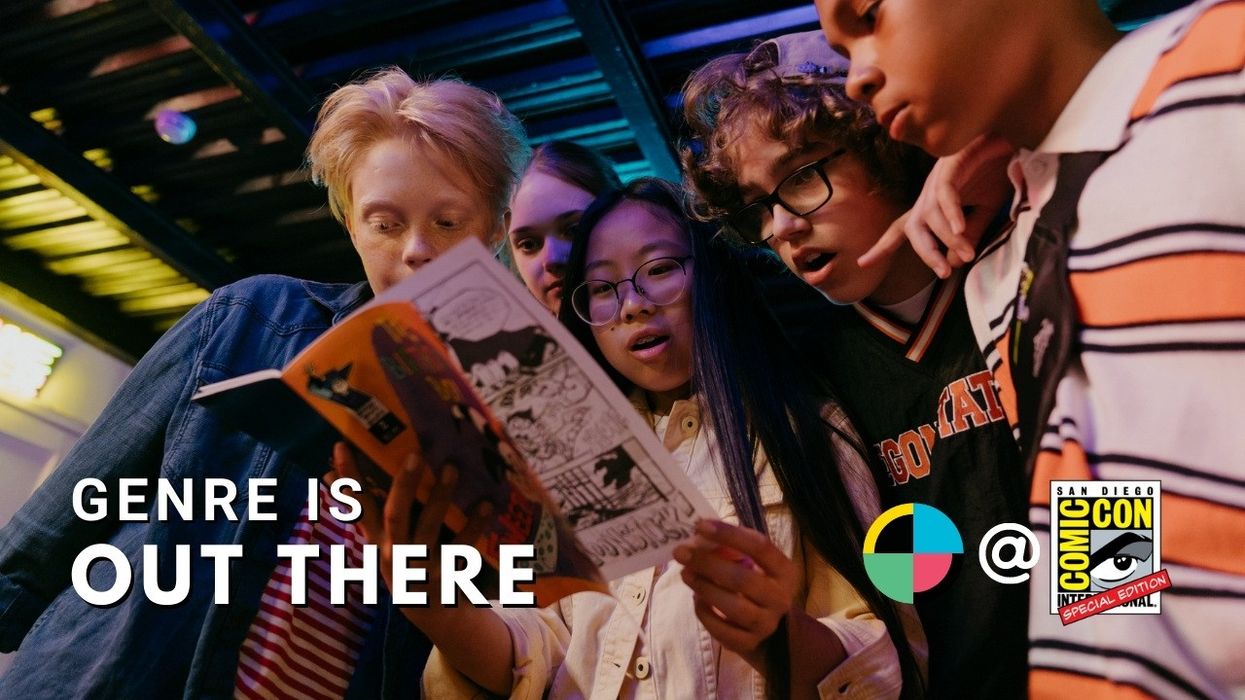The Great Big Genre-Verse Is Out There
Do you have a favorite genre you want to pursue?

I think we can all agree, you should know the kind of thing you're making when you start out, and you should understand similar titles that are in the marketplace. One of the biggest questions I ask every writer is, "What's your genre?"
Genre matters so much. It helps dictate which studios might want projects, which producers might attach, and which actors/directors/writers might be perfect for your project.
It also helps you, the creator, decide what needs to go into your work. What are some tropes or expectations you can renew, subvert, or embrace?
As No Film School's resident screenwriting nerd, I was so pumped to attend the " It's a Great Big Genre-Verse" panel at San Diego's Comic-Con Special Edition today. As the con put it, fiction offers readers both the satisfaction of established tropes and the excitement of mash-ups and mix-ups. Authors Darby Kane (The Replacement Wife), Alexa Donne (The Iviesand a writing advice YouTube channel), S. B. Divya (Machinehood), Lilliam Rivera (We Light Up the Sky), and Gretchen McNeil (#NoEscape) had a lively conversation with Maryelizabeth Yturralde about picking genres for their work and how they deal with them on the page.
Know your genre
When it comes to genre, knowing what you're writing is top of the list. You can get a sense of what the audience wants, the archetypes that thrive here, and an outline of the plot that usually happens. You can play with the details or little surprises for the audience.
People are smart and have seen or read a lot of things in their favorite genre, so when you can, you have to balance satisfying them and also challenging them. Push people to see outside the comfort of the genre. You can play in familiarity and surprise them with newer issues. You can also use your own voice to talk about what you believe are the best parts of the world and what matters to you.
Education also is a benefit here. There will always be TV shows, movies, and books that came before you to learn from. You can pick up on where they went wrong, right, and even find the tropes and expectations for each of them and subvert when necessary. When you begin your project, collect everything you think might be like it, and steep yourself into these worlds and ideas so you know what you can play with and what the expectations are for the audience.
Genre is a tool
One thing everyone on the panel agreed on is that genre is a tool, not just a classification.
It's something you use to build your story, but should never control you or your work. Know what you're writing and know how you want the story to go. Sure, there are subgenres for everything, but don't be afraid to mash up, blend, or branch out. This is a tool for you to use, but don't ever feel limited by the term either.
A fun last thing the panel talked about was avoiding being typecast into one genre. If you want to try something new and not be judged by the past, consider a pen name! Let people get into the work without the baggage of your previous work. It's something I think I'll try!
Let me know what you think in the comments.












